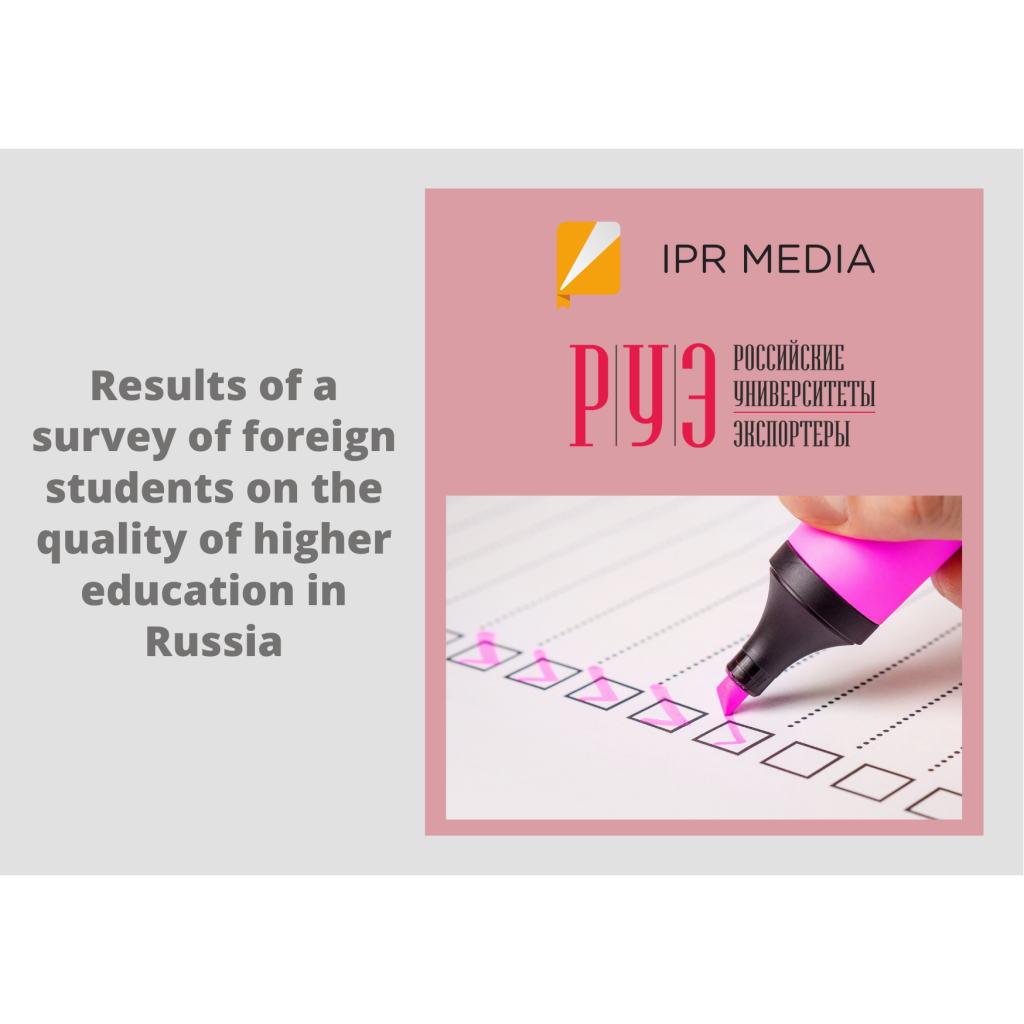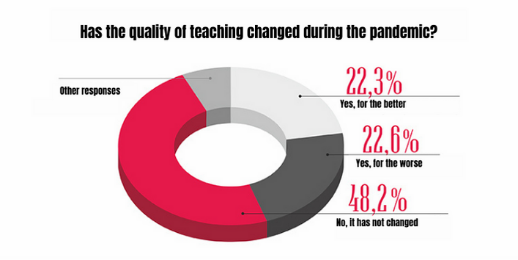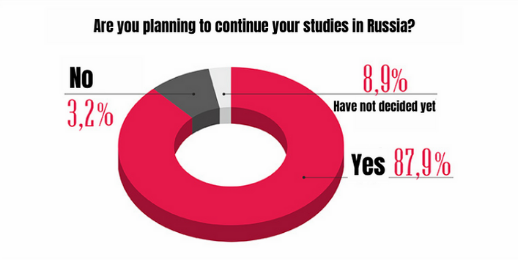
IPR MEDIA, an industrial member of the “Russian Exporting Universities” network, has studied the level of satisfaction with Russian universities among international students, during the pandemic.
The survey has been performed from 13 April to 6 June, 2021. It involved 851 foreign students from 6 Russian universities – participants of the network partnership:
- Ammosov North-Eastern Federal University, NEFU;
- Polzunov Altai State Technical University;
- Penza State University;
- Perm State University (PSU);
- Financial University under the Government of the Russian Federation;
- Rostov State University of Economics.
The survey aimed to estimate the current situation, possible changes and prospects of Russian education on the global educational market.
According to students’ feedbacks, for almost half of them (48.2%), the quality of education has not changed. However, the options “got better” and “got worse” received a nearly equal amount of voices: 22.3% and 22.6%, respectively. The higher the level of respondent’s education, the more positively he/she classifies the quality of education during the pandemic.

The majority of respondents are planning to continue their studies at Russian universities – 87.9%, while 3.2% of them failed to show any interest in that.

The results show a high level of students’ satisfaction with the quality of educational services, positive experience gained , and a high demand for Russian education.
Almost half of the total number of respondents chose the following areas of studies when applying to Russian universities:
- medical and biological faculties – 48.2%,
- humanities – 17.4%,
- economics and related – 10%.
The above streaming reflects a general trend in selecting disciplines for studying in Russia.
The study confirms the assumption that more foreigners choose Russia as a place for study. The Russian language is among their choices, as well. Under the conditions of the pandemic, which has been lasting over 1,5 years from now, foreign students tend to adapt to distance learning, and are less likely to express dissatisfaction with its quality and technical conditions.
For reference: “Russian Exporting Universities” is a voluntary association of universities and experts that aims at improvement of practices and educational methods used at teaching foreign students, developing modern educational programs, attracting newcomers, improving competences in teaching Russian as a foreign language, developing the state testing system for the Russian language, etc.
For more info, please, see the original in Russian.
